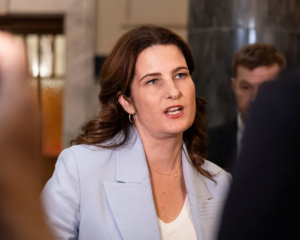
The latest data from the Ministry of Transport shows the social cost of crashes was $9.77 billion in 2021 - 4 per cent of gross domestic product or GDP.
New Zealand was also far behind other countries with 7.3 road deaths per 100,000 people for 2022.
That compared to 2.1 in Sweden and 4.5 in Australia.
Chief executive of Global Road Safety Partnership and former assistant commissioner of Road Policing David Cliff said any crash at more than 30 km/h increased the likelihood of serious harm, so one solution was to adjust speed limits.
"If New Zealand were to take this bull by the horns and halve the trauma rate that's potentially around a $5 billion [a year] saving... Multiply that across 10 years you're talking about $50 billion. Huge opportunities for New Zealand to reduce its trauma levels."
Research showed a 5 per cent decrease in average speed led to approximately a 10 per cent decrease in all injury crashes and a 20 per cent decrease in fatal crashes, he said.
Transport Minister Simeon Brown has issued a directive to Waka Kotahi and councils around the country to cease blanket speed limit reductions.
In a statement, Brown said work would begin on a new policy ensuring speed limits took into account travel times and the views of local communities as well as safety.
Cliff said the government's plans to put speed limits back up in some areas may not be a good idea.
"To move away from that is incredibly risky. New Zealand can't afford to have an increase in trauma rates through increasing speeds," he said.
"Any calls to increase speed limits directly mean they're asking for more people to be killed and seriously injured in road crashes."
It would also push up costs with more people having to use the hospital system, he said.
By Emma Stanford













